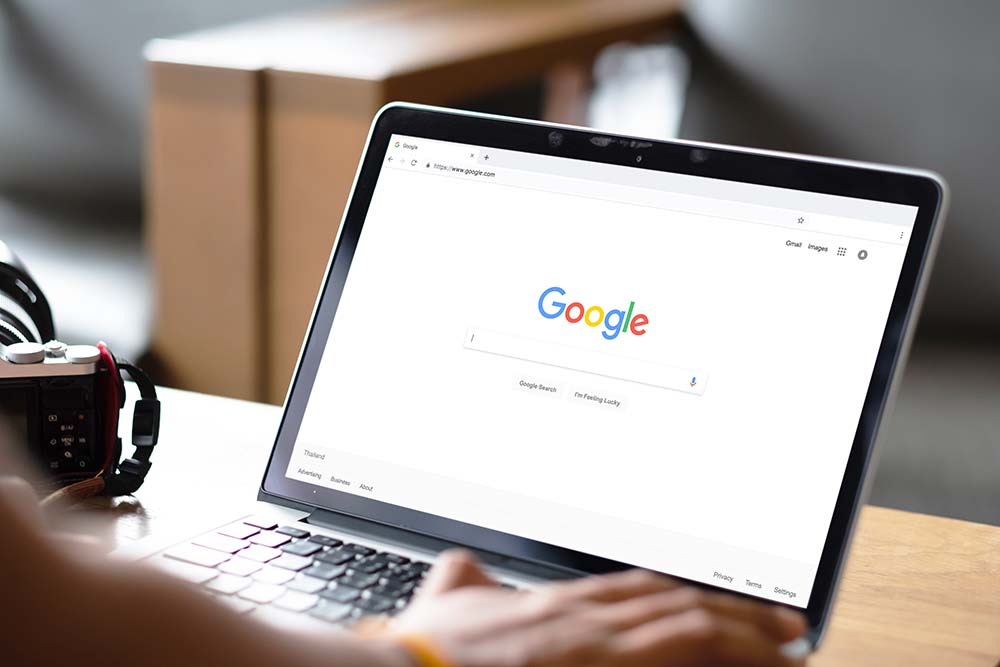If you’re a small business owner questioning the value of SEO, you’re not alone. Many small businesses face tight budgets. Yet, those who prioritize SEO often outshine those who don’t. This Success doesn’t happen overnight, but it builds over time.
Let’s get straight to the point. Is SEO worth it for small businesses? Yes, but not for the reasons you might think. It’s not for everyone. Here’s why.
SEO is a Long Game.
First, SEO isn’t a quick fix. It won’t boost your business overnight. If you want instant traffic, buy ads. SEO is about creating a strong foundation, which pays off over months and years of hard work and effort.
Once SEO gains traction, it compounds. Your pages rank higher, your brand gets noticed more, and your authority grows. Soon, leads find you instead of the other way around.
Small businesses often can’t afford endless ad campaigns. SEO works quietly, pulling in leads even while you sleep.
Is SEO Worth it for Small Businesses?
Yes, SEO is worth it for small businesses because it boosts online visibility, attracts organic traffic, and lowers long-term marketing costs by generating free organic leads. Also, it helps small businesses compete with larger brands, generate local leads, and build trust with customers. This makes it a smart, cost-effective growth strategy.
What Does SEO Actually Do for Small Businesses?
Let’s break down how SEO helps small businesses without all of the marketing jargon.
1. SEO Builds Visibility Without Paying for Every Click.
Imagine you’re a local roofer. If someone searches “roof repair near me” or “Mediterranean restaurant near me” and you’re not on the first page, you’re invisible to potential customers.
Paid ads might get you there temporarily, but SEO earns you that spot. Once you’re ranked, you don’t pay for every click. This leads to higher returns, lower costs, and a more sustainable flow of leads.
Better yet, organic clicks are trusted more than ads. You gain visibility and credibility.
2. SEO Creates Long-Term Brand Recognition.
Every time your business appears on page one, people notice. Even if they don’t click initially, you’re making an impression. Over time, visibility leads to familiarity. Familiarity builds trust, and trust drives conversions.
Think about it: people rarely buy from strangers. SEO helps you show up consistently until you’re familiar with people. Once you’re familiar, people will more confidently choose your brand over others.
3. SEO Reduces Customer Acquisition Costs.
Paid ads are like a faucet. Once you turn it off, traffic immediately stops.
SEO is more like a well. With effort upfront, you create a steady stream of traffic that doesn’t rely on ad spend. Once your content ranks, traffic costs nothing. You’re not paying per click; you’re just maintaining your web pages. Good webpages will drive free traffic and leads well into the future.
When you optimize your small business website for SEO, your cost per lead goes down because now you’re relying on free leads from the organic channel in addition to paid leads. At the same time, the quality of leads gets better.
4. SEO Helps You Compete with Bigger Players.
Let’s face it: small businesses can’t outspend national chains in PPC. But they can outsmart them in SEO.
You can own your niche, dominate local searches, and outmaneuver larger competitors. SEO levels the playing field, especially in local markets where big players lag behind.
I’ve seen small shops outrank Fortune 500 companies simply by focusing on their on-page strategy and local listings.
So, to answer your questions again, SEO is a game-changer for small businesses. If you’re a small business and you’re not investing in SEO, you’re missing out on free leads and sales. Partner with a small business SEO agency like Rankwise. We have the knowledge and hands-on experience it takes to rank your small business amongst the giants of this world.
5. SEO Supports Other Marketing Channels.
Good SEO isn’t just about keywords. It improves your entire website, making it faster, more organized, and user-friendly.
This boosts performance across the board. Your paid ads convert better. Your social media links lead to cleaner pages. Your email campaigns link to optimized content. SEO is the unseen engine that powers everything.
Think of SEO as the glue binding your digital marketing together.
Why Do Some Small Businesses Fail at SEO?
Now, let’s discuss the part many “experts” avoid.
Many small businesses waste time and money on SEO. This happens not because SEO doesn’t work, but because they do it incorrectly.
1. They Expect Quick Wins.
SEO runs on Google’s schedule, not yours. If you can’t commit for at least 6-12 months, don’t bother trying to rank for the keywords that matter to your business.
Business owners who give up after two months never see results. They get frustrated, blame the strategy, and revert to costly short-term fixes.
2. They Choose Cheap Options and Regret It.
Cheap SEO is a trap. Automated tools, spammy backlinks, and poor content can hurt your long-term Success.
You either pay for quality now or pay to recover from penalties later. Choose wisely.
Partner with a well-known, reputable SEO agency like Rankwise. We do everything by the book, ensuring your website ranks well and continues to rank well into the future.
3. They Don’t Define Success
Ranking for random keywords isn’t enough. Traffic that doesn’t convert is useless. SEO should match your business goals. This includes local calls, store visits, form fills, or product sales.
Without tracking, you’re operating in the dark. Set up SEO tracking via Google Analytics and Google Search Console so you’re always aware of what content is working and what is not. Double down on what works and fix what’s not working.
SEO for Local Businesses is a Goldmine.
Local SEO deserves special attention because it’s where small businesses can thrive.
Claiming local listings, adding schema, gathering reviews, and optimizing your Google Business Profile is essential for the Success of any local business.
Most small businesses serve local communities. Why wouldn’t you want to rank for “plumber in Anaheim” or “best tacos near Orange, CA]”?
These keywords have clear buying intent and are easier to rank for than broader national terms.
So, not optimizing for these keywords is leaving money on the table.
DIY SEO vs. Hiring an SEO Expert Like Rankwise.
Should small businesses attempt SEO themselves? It depends.
If you’re tech-savvy and love learning, DIY SEO can work. Many helpful checklists and tutorials are available on Google and YouTube.
But if you’re already working long hours to keep your business afloat, hiring a specialist might be a better option for you. You don’t need an agency; a solo SEO consultant can offer personalized, high-quality SEO at a lower cost.
Rankwise PRO Tip: Steer clear of anyone promising “guaranteed rankings.” No one can control Google and your competitors. If it sounds too good to be true, it probably is.
How Can You Improve Your Small Business SEO?
Let’s explore what you can do to improve your small business’s SEO:
1. Publish High Quality and Helpful Content.
Create content that answers real questions your customers often ask you. Write for humans and not search engines. Use your voice and add visuals. Think FAQs, how-tos, comparisons, and reviews. The more helpful your content is, the better it will rank on Google.
2. Ensure Your Website is Clean and Easy to Use.
Your site should load quickly, look great on mobile, and be easy to navigate. Google prefers sites that users enjoy.
Technical SEO is important. Fix broken links, add missing alt tags, and remove duplicate pages. Focus on function first, not perfection.
3. Establish Your Local Presence.
To build your local presence, keep your NAP (name, address, phone) the same in all listings. The more consistent your NAP, the better you will rank on Google and other search engines. Gather reviews and respond to them. Use local keywords naturally in your content. Embed maps and use location schema.
These steps can significantly improve your local rankings.
4. Earn High Quality Backlinks.
You don’t need thousands of backlinks to rank well on Google. Focus on a few quality ones. Think about local press, partnerships, community involvement, and guest blogging.
Start small and prioritize relevance and reputation. One solid backlink from a local news site is worth more than many low-quality directory links.
When Is SEO Not the Right Move?
Let’s be honest. SEO isn’t for everyone.
If your business is new and needs cash flow now, focus on quick-win channels first. Run ads, network hard, and build a referral pipeline.
Once you stabilize, layer in SEO. Use short-term tactics to survive and SEO to grow.
Also, if your industry has no search demand, maybe it’s so new that no one has Googled it, SEO may not be useful right away.
But these cases are exceptions, not the rule.
We encourage businesses that have the means to invest in SEO. It will help you attract customers to your products and services without needing to spend money on expensive ads.
The Conclusion: Is SEO Worth It for Small Businesses?
Yes, ABSOLUTELY. But treat it like a long-term investment, not a lottery ticket.
SEO is worth it because it helps you:
- Build a visible, trusted, and discoverable brand.
- Attract quality leads without paying for every click.
- Lower customer acquisition costs over time.
- Support your other marketing channels.
- Compete with larger players and succeed locally.
However, it’s not an immediate solution. You must be consistent with SEO efforts, track results, and adapt to changes from Google and your competition.
Get ready to invest in SEO wisely. Focus on smart content, strong site structure, genuine backlinks, and local relevance. You will see great rewards! Maybe not today. Maybe not next month.
But when it works? It works big.
Need help getting started or assessing your SEO? Don’t guess. Start with a free site audit or competitor gap analysis from Rankwise. Take it one step at a time.
When SEO begins to work for your business, you won’t just keep up. You’ll lead.
What Types of Clients Does Rankwise Help?
Rankwise helps all small businesses. Here are some of the clients we serve:



